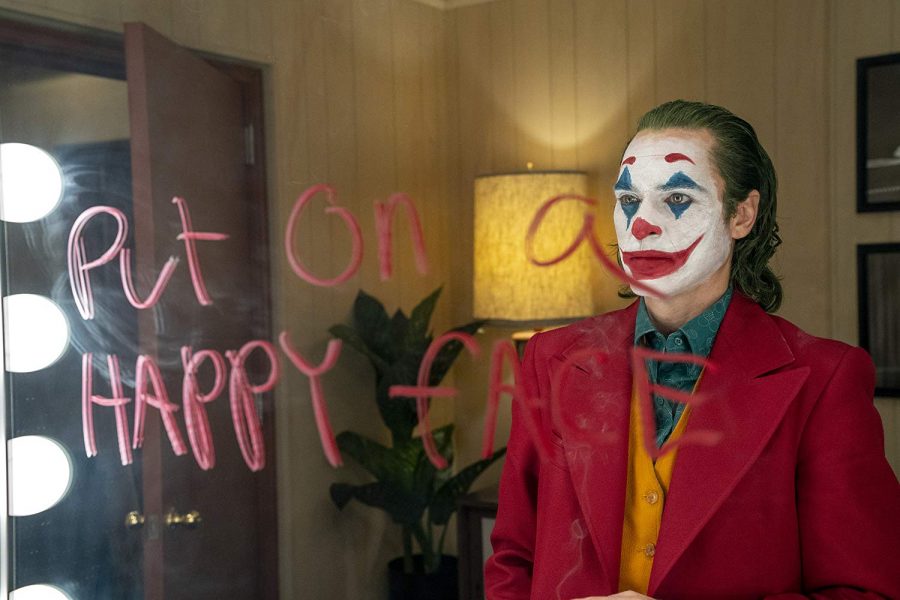REVIEW: ‘Joker’ deadly serious about villain’s origins
(Photo obtained from IMDB.com) “Joker” doesn’t play around with the notorious supervillain’s backstory and origins.
October 30, 2019
In October, the highly anticipated controversial DC Comics movie, “Joker”, arrived in theaters. “Joker” pushes the envelope of the comic book genre by delivering a complex character study in lieu of caped crusaders and special effects. It is an outstanding film that firmly stands on its own accord.
“Joker” begins like many origin stories, with its main character, Arthur Fleck, struggling to stay afloat in a Gotham City plagued by decay. Arthur’s life is a study in tragedy. The victim of childhood abuse and progressive mental illness, Arthur struggles in poverty to care for his ill mother. Throughout the film, Arthur is repeatedly beaten and cast aside, as both his mental state and the city deteriorate, until he is utterly alone, victimized by a cruel, broken society.
The film’s brilliance lies in its depiction of Arthur’s struggle. The opening sequence follows Arthur’s work as a clown for hire, advertising street side for a closing business. A gang of marauding teens steal Arthur’s sign, lure him into an ally and brutally assault him. The final frame focuses on Arthur scrunched on the ground, writhing in pain. This shot is so powerful because it vividly portrays the helplessness and pain within Arthur’s life, evoking sympathy from the audience notwithstanding the common knowledge of Joker’s future as the clown prince of crime.
He captivates the audience in every frame, whether through disturbing dance, stomach-churning fits of laughter or contorting his body in bouts of rage. Phoenix has an incredible physical presence, gaunt from having lost over 50 pounds for the role yet still powerful. With his sickly, skeletal frame and commanding performance, Phoenix tells Arthur’s tragedy as a poor, ill man, ravaged by society. In this regard, “Joker” is one of this year’s most powerful dramas.
Another particularly effective aspect of “Joker” is its careful drawing from the original source material. Unlike “The Avengers” or “Justice League,” there are no grandiose cameos, witty banter or name dropping details from the comics universe. Instead, “Joker” focuses on the grit and grime of Gotham City to make a distinct narrative statement. In addition, the movie carefully incorporates the Wayne family into the plot. Thomas Wayne, father to Batman-to-be Bruce, physically assaults Arthur and refers to the poor and impoverished as clowns. He plays an instrumental role in Arthur’s descent to madness, which precipitates the origin of the Joker and the ultimate murders of Thomas and Martha Wayne. This is a watershed moment in the Batman comics, one that propels Bruce to assume his vigilante persona. In the end, there is no Joker without the Wayne family, and no Batman without the Joker.
Such deliberate care and storytelling further establishes “Joker” as a unique drama and a revolutionary comic book film. It is a rare film that keeps viewers on the edge of their seats throughout the story, and in complete shock and awe as the ending credits fill the screen. If you don’t see it, the joke is on you.


